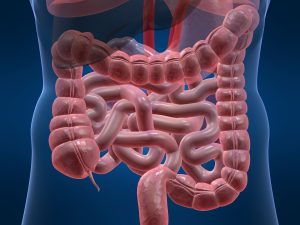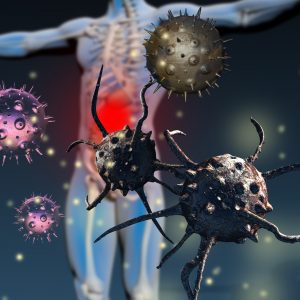
Leaky Gut, Chronic Disease, & Long Term Health
Leaky Gut This blog discusses the very important health issue of leaky gut. You will learn: What is the gut & the gut microbiome What
If you are a doctor or clinician looking to make a bigger impact on the world, have more job satisfaction and have up-to-date protocols and treatment solutions for your patients, check out our free functional medicine training led by functional medicine expert, Dr. Miles Nichols below.
Plus additional BONUS training videos on treating tough cases of brain fog and cognitive impairment!!
In this blog, we will look at cognitive impairment & Alzheimer’s Disease in relation to various lifestyle factors. You will learn:
Do you know what cognitive impairment is and how it can affect your clients? If you want to know more about this rapidly growing health concern and how to best optimize the health of your clients, then this blog is for you. Please read on for answers!
Do you get stuck clinically with chronic symptoms in your patients? Would you like to have a larger impact on improving your clients’ issues?
The key to optimal health is an individual approach using nutrition, lifestyle and exercise. To improve your patients’ quality of life, you need to identify and address the root causes. Our functional medicine course will teach you how to do this. Look into our functional medicine school to have a greater impact on improving your client’s lives.
** Please note: If you want the short summary version of this article click here. **
What is Alzheimer’s Disease (AD)?
Alzheimer’s Disease is a brain disorder that slowly destroys memory and thinking skills. Symptoms include memory loss, language problems, unpredictable behavior, and, as it progresses, the ability to carry out the simplest tasks. In most people, symptoms first appear in their mid-60s (National Institute on Aging, 2021). You can read about Alzheimer’s in our blog here.
Alzheimer’s Disease Facts:
What is the current Alzheimer’s Disease Treatment today?
Treatment of AD can be challenging. Conventional treatment strategies for Alzheimer’s Disease have been almost completely unsuccessful. The best results from pharmaceutical drug trials show that the rate of progression in cognitive impairment slows down (Toups K, 2022). But there is unfortunately no improvement or stabilization in cognition (Toups K, 2022).
One reason that conventional medicine has no effective treatment for Alzheimer’s is that there is no agreement on the cause of Alzheimer’s. There are various theories of the cause, including (Toups K, 2022):
Narrowing in on and treating for one of these ‘causes’ is ineffective. It does not target the underlying root causes. It instead tries to address common secondary factors, such as amyloid plaque in the brain.
Fortunately, we have Functional Medicine!
There are a number of approaches to take with AD, depending on the root cause(s). Our Functional Medicine (FM) clinic is well-versed in addressing and treating Alzheimer’s. In our clinic, we know that early-stage dementia can be addressed. Later stage dementia can also be helped significantly by a FM approach.
FM gives us a more effective strategy than the current drug therapy, which doesn’t work. A new study looking at early-stage Alzheimer’s Disease using a FM approach proves our point (Toups K, 2022):
In people who followed a detailed and individualized FM protocol, 84% showed improved cognition.
What is the FM approach and how does it help with AD?
An effective FM approach to dementia is to identify the root cause(s) of cognitive decline in each patient and address them one by one.
What are the Potential Root Causes or Triggers that can contribute to AD?
The factors that can potentially contribute to dementia and eventually Alzheimer’s include (Toups K, 2022):
If these factors can be addressed with an individualized protocol for cognitive decline, then dementia can be slowed down, improved and even reversed, depending on the individual case (Toups K, 2022).
The recently published study which found improvement in 84% of participants, followed FM principles (Toups K, 2022). This study basically encompasses everything taught in our online FM school/program.
If you want an overview of FM principles, please look at our blog here. For an explanation of how FM differs from conventional medicine see our blog here.
In the study, researchers looked at the following issues linked to Alzheimer’s Disease-related cognitive decline: (Toups K, 2022):
Plus additional BONUS training videos on treating tough cases of brain fog and cognitive impairment!!
Treatment
Researchers also looked at the Alzheimer’s patients’ lifestyle choices and optimized these where needed:
Diet
The diet used in the study is one we advocate in our practice. It was high in fiber, with lots of vegetable, leafy greens and other non-starchy vegetables (both raw and cooked). It was mildly ketogenic (i.e., low carb) diet, high in unsaturated fats, low in glycemic load. Participants had a nightly fasting period of 12–16 hours. They ate organic vegetables, wild-caught low-mercury fish (salmon, mackerel, anchovies, sardines, herring), pastured eggs and meats. Importantly, the diet removed processed food, simple carbohydrates, gluten-containing foods and dairy.
Exercise
Participants exercised for at least 45 minutes / day, at least 6 days per week (for aerobic exercise) and at least twice per week (for strength training). High-intensity interval training (HIIT) was recommended for a minimum twice / week.
Sleep
The study included sleep hygiene to make sure participants had 7-8 hours of quality sleep per night. People were tested for sleep apnea and were given a CPAP machine, if necessary, to improve sleep.
Stress
Stress management was done for a minimum of 10 minutes per day, using biofeedback and heart-rate variability training.
Brain exercise
Brain training was done for a minimum of 15 minutes / day. Participants performed 29 cognitive exercises that target speed and accuracy of information processing.
Other health factors were looked at and corrected if necessary:
Hormones
For study participants with hormonal imbalances, bio-identical hormone replacement and supplements were given. The goal was to optimize sex hormone levels, DHEA, pregnenolone and vitamin D. Thyroid medication was used for people with low thyroid or thyroid dysfunction. Patients with nutrient deficiencies were given the appropriate nutrients such as vitamin D, omega-3, B vitamins, CoQ10 or minerals.
Gut health
Some people in the study had gastrointestinal hyperpermeability, infections, inflammation or impaired absorption / digestion. These people went through a gut healing protocol with dietary restrictions, gut-healing nutrients, digestive enzyme support and treatment of any identified dysbiosis.
Inflammation
People were identified for systemic inflammation. They were given supplement support and anti-inflammatory herbs, such as liposomal glutathione, fish oil, resveratrol, vitamins C and D, Boswellia, quercetin and omega-3 fats. In some cases, low-dose naltrexone was prescribed. Patients who showed cognitive improvement at 6 months but still had residual systemic inflammation went on the Fasting-Mimicking Diet to reduce inflammation.
Chronic infection
Any infection linked to cognitive decline or systemic inflammation was identified. For example, people with Herpes simplex infection or a history of outbreaks, took the medication Valacyclovir for 2–6 months. Active Epstein-Barr Virus was treated with herbal protocols (Juniperus, Acer and Tamarix). People with tick-borne infections, such as Borrelia, Babesia or Bartonella, took herbal anti-microbials, such as Japanese knotweed along with immune support.
Toxicity
People who had toxicity from metals (mercury or lead), organic pollutants (benzene, phthalates, or organophosphate insecticides) or biotoxins (trichothecenes, ochratoxin A, or gliotoxin) were treated. A targeted detoxification protocol using binding agents (Cholestyramine or bentonite clay), sauna, herbs, sulforaphane and avoiding seafood if necessary (Toups K, 2022).
Testing
It is important to utilize testing of various types to assess for cognitive decline and to track improvements or decreases in cognition. This way, the FM practitioner knows where you are, if you need treatment and how treatment, or even lack of treatment, is affecting cognition.
As part of the FM treatment approach to Alzheimer’s, we run lab tests at the start of treatment. These lab tests need to also be run at regular intervals, say every 6-12 months, to track progress. The tests will help to identify issues contributing to or causing Alzheimer’s, such as insulin resistance; inflammation and infections; hormone or nutrient imbalances; and toxic load (chemical, biological or physical).
Specific issues or potential root causes to look for through lab testing are:
In addition to blood markers, if you are concerned about cognitive function, it is important to monitor and track status, for which there are a number of tests that can be done online. Re-testing helps to track if cognitive performance declines over time or improves with treatment.
The tests to consider can be found at the following links:
The Results of the FM Approach
The positive results from this study are very encouraging. The treatment targets biochemical pathways associated with cognitive decline. The results show that some of the biochemical targets addressed are causal. And that targeting some of these pathways can impact the causes of cognitive dysfunction (Toups K, 2022).
In this study, there were no serious adverse events recorded. Most patients improved their overall health on this protocol. Some no longer need blood pressure meds, anti-diabetes drugs or statins. This is because each person’s root causes of poor health were targeted to address cognitive decline, improve resilience and increase overall health (Toups K, 2022).
The study did not look at patients with intermediate or advanced stage Alzheimer’s Disease. Later-stage AD can be more challenging. But there are anecdotal reports of patients with more advanced dementia showing improvement with a similar FM approach (Toups K, 2022).
Summary
Alzheimer’s Disease is a difficult to treat illness and pharmaceutical treatment has provided minimal benefit. Functional Medicine is an alternative approach to treating AD that has shown encouraging results by utilizing a multifactorial, root-cause approach. Potential lifestyle treatments include:
Although there is no cure for Alzheimer’s Disease, lifestyle factors are showing promise in slowing and potentially reversing cognitive decline through comprehensive personalized protocols. As further root causes are identified, it will be interesting to see what the future of FM treatment of dementia will bring.
Our functional medicine clinic is extremely well-versed in addressing and treating Alzheimer’s. In our clinic, we address potential root causes. In our online Functional Medicine program, you will learn how to identify the various root causes of cognitive impairment and Alzheimer’s and how to implement these treatments to improve your patients’ lives.
** Please stay tuned for our next Blog! **
If you are a clinician wanting to learn more about treatment of Alzheimer’s Disease, please check out our clinician training programs here.
Does your current health situation look like this…
We specialize in finding answers and solutions for complicated chronic illness when people feel like they have tried everything. If this sounds like you, book a free call with us to see if we are the right fit for your health goals.








Leaky Gut This blog discusses the very important health issue of leaky gut. You will learn: What is the gut & the gut microbiome What

Research on Alzheimer’s disease is continuously looking for what causes the disease and how to better treat Alzheimer’s. A relatively new finding suggests that Alzheimer’s

In this blog, we will look at Lyme Disease and answer the question ‘How does Lyme Disease become chronic?’ You will learn: What Lyme Disease

In this blog, we will look at the causes of Bartonella. You will learn: What Bartonella is and how it compares to Lyme Disease What

In this blog, we will look at the many symptoms of Bartonella. You will learn: What Bartonella is and what causes it What are the

In this blog, we will look at Bartonella. You will learn: What Bartonella is and how it compares to Lyme Disease How Bartonella is spread

In this blog, we will look at Lyme Disease and answer the question ‘Is Lyme Disease curable?’ You will learn: What Lyme Disease is How

In this blog, we will look at Lyme Disease and the growing threat that it has become. You will learn: What Lyme Disease is How

In this blog, we will look at Lyme Disease and mental health. You will learn: How and why Lyme Disease can affect mental health How

In this blog, we will look at cognitive impairment & Alzheimer’s Disease in relation to various lifestyle factors. You will learn: How lifestyle can affect

Alpha Gal Syndrome Today’s article outlines a condition that is thought to affect, conservatively, 3% of the US population. However, there may be many undiagnosed

Can Lyme Disease Cause Joint Pain? In this blog, we will look at Lyme Disease and joint pain. You will learn: How & why Lyme
There was a problem reporting this post.
Please confirm you want to block this member.
You will no longer be able to:
Please allow a few minutes for this process to complete.

